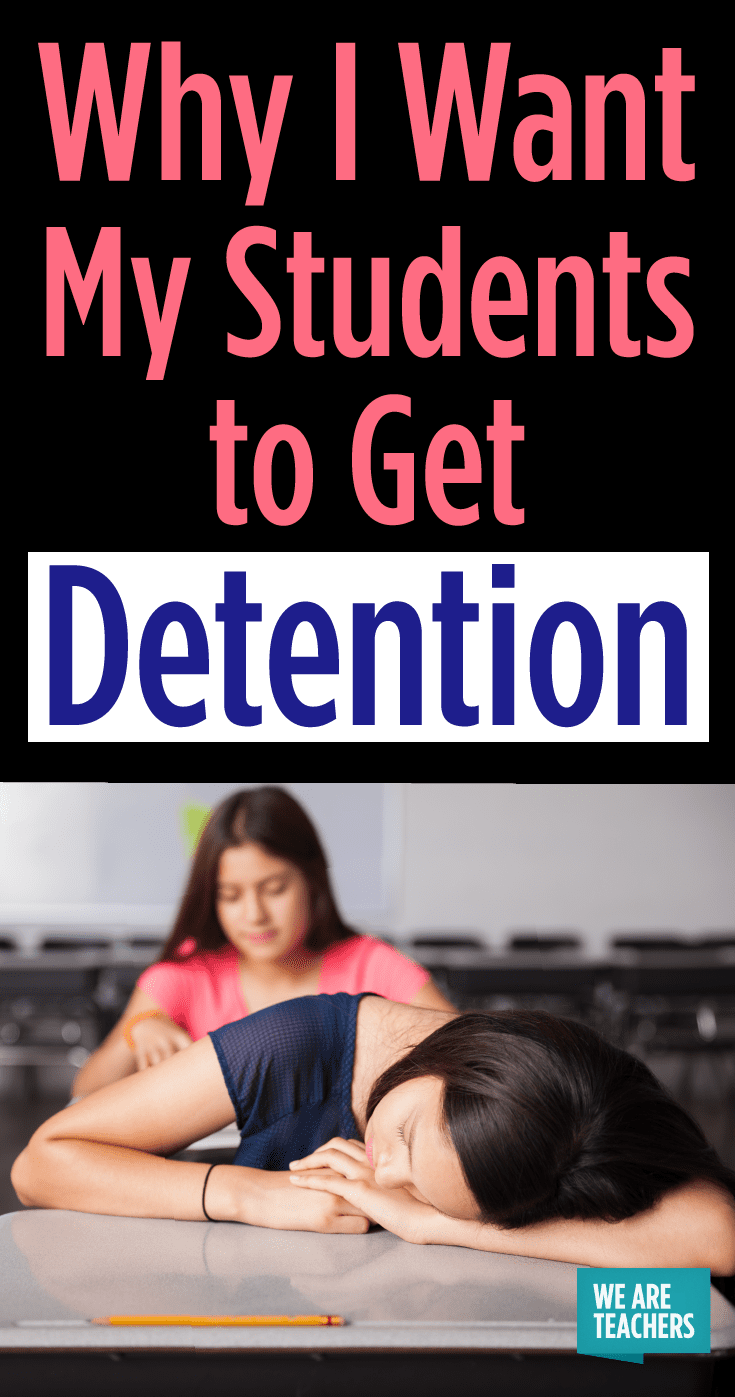Every year, I have my students write about their goals for the year during the first couple of weeks of school. And every year I have a few kids who make it their primary goal in life never to get in trouble.
“I won’t get detention all year.” “I will never miss a homework assignment.”
It’s a conversation-starter every year, because I think it’s a terrible goal, both in school and in life. I believe it’s crucial to learn from mistakes.
So here’s what I tell my students about getting in trouble:
“Some of you guys wrote that you want to make it through the whole year without getting detention. I totally get that, because detention is boring and miserable. It’s supposed to be. But I think you might want to give that goal a little more thought.
You see, if your number one goal is to avoid getting in trouble, you’re going to miss out on a lot of life experiences. I’m not talking about smoking in the bathroom—that’s an experience you can definitely afford to skip. And I’m definitely not talking about bullying or being stupid on the internet because that stuff can follow you forever.
I’m talking about laughing too loudly with your friends at the lunch table or getting so engrossed in a project that you get caught working on it in your next period class. I’m talking about feeling so strongly about what you want to say that you forget to raise your hand before you say it. Having so much fun with your friends that you slip up and forget your homework one night because you’re outside playing until it’s dark.
“If you’re focused on never getting in trouble, you’re limiting your opportunities to learn from mistakes.”
You guys are kids. Making mistakes and getting in trouble is basically your primary function during this part of your lives.
There are so many things you have to learn as a middle schooler—how to help your friend through a bad breakup. How to defend somebody who’s being picked on. How to defend yourself against rumors and gossip. And nobody, nobody gets it right the first time. You’ve got to do these things the wrong way and get in trouble and figure out better ways to cope next time, or you’ve learned nothing.
And here’s the other reason it’s important. At some point in your life, you’ll be faced with a situation where doing the right thing will get you in trouble. Maybe it’ll be at work, where your boss wants you to do something slightly unethical to make a profit. Maybe it’ll be in a relationship, where being honest with someone you love results in anger and resentment. Or maybe it’ll be here in school, when you see someone with power—student or faculty—misusing it against someone without.
“If you don’t know how to get in trouble, then you’re going to have a much harder time doing the right thing when that crisis arises.”
I never want you to get in trouble for being mean to somebody. I never want you to take the kind of risks that end in tragedy, like experimenting with drugs or gang activity. And I don’t want you to get in trouble because you just decide that homework isn’t really your thing this year.
But I do want you to get in trouble. I want you to make mistakes and drive me crazy and make my life more difficult. You’re my students; it’s not your job to make sure my day goes smoothly. It’s your job to screw up and let me help you learn.
So instead of focusing on never doing anything wrong, how about you focus on doing what’s right? Even when you’re not quite sure how, even when you go about it the wrong way, even when it gets you in trouble? A kid who never gets detention may be an excellent student. But we don’t want you to grow up to be star students. We want you to grow up to be fulfilled, engaged, compassionate, wise adults. And making mistakes is the only way to get there.”
It’s a dangerous message to send because the kids misunderstand.
They’ll expect me not to hold them accountable when they screw up, “because I told them to.” And it’s often not a message their parents will agree with. I understand and respect that—and God knows, I appreciate it—but I also have to help these kids become good citizens the best way I know how. And one of the ways I do that is by encouraging them to make mistakes.
I’m not sure the message gets through to most of my sweet perfectionists. I still have kids who make it through the year without ever doing anything wrong. I really don’t think they’re just slick, either; they really put that much pressure on themselves to do everything absolutely perfectly. But when a kid comes to me complaining about her first detention in eight years of public school, I don’t tell her I’m disappointed or commiserate with her about how much it sucks. I congratulate her and tell her that she’s gained a new life experience because that’s what I truly believe.

